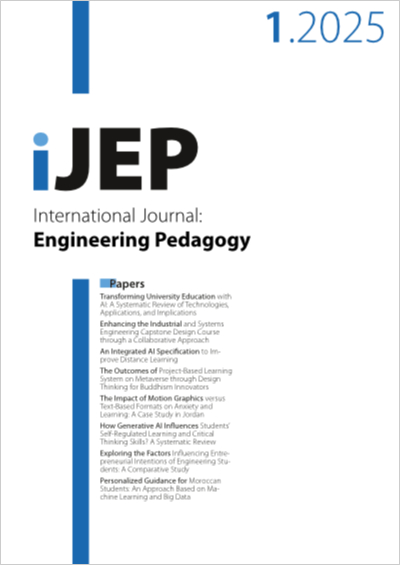An Integrated AI Specification to Improve Distance Learning
DOI:
https://doi.org/10.3991/ijep.v15i1.51881Keywords:
Artificial Intelligence, PIKU, Pedagogy, Inclusivity, Knowledge management, User centricityAbstract
The distance learning domain has undergone an increasing interest in recent artificial intelligence (AI) technological innovations, aiming to improve the quality of learning while saving time, energy, and cost. Nevertheless, despite using these technologies, during the COVID-19 pandemic, distance learning actors, including tutors, content producers, and learners, encountered difficulties in learning through online sessions and virtual classrooms. They suffer from issues related to the availability of tutors and teachers, reliability of knowledge, restricted learner behavior, limited human interaction, and learners’ dropout. To address these challenges, this paper proposes the “PIKU” specification, focusing on four main requirements, particularly, 1) pedagogy, 2) inclusivity, 3) knowledge management, and 4) user-centricity. This specification aims to support learners, promote interaction, and foster collaboration while enhancing learners’ engagement. We propose providing reliable knowledge while ensuring equitable learning and prioritizing learners’ preferences, improving the overall learning experience. Furthermore, we illustrate the feasibility of the “PIKU” specification by proposing an educational system capable of automatically supporting learners. This system not only meets the “PIKU” requirements but also demonstrates its ability to promote an engaging and rich learning experience.
Downloads
Published
How to Cite
Issue
Section
License
Copyright (c) 2024 KHADIJA EL AZHARI, Imane Hilal, Najima Daoudi, Rachida Ajhoun

This work is licensed under a Creative Commons Attribution 4.0 International License.



